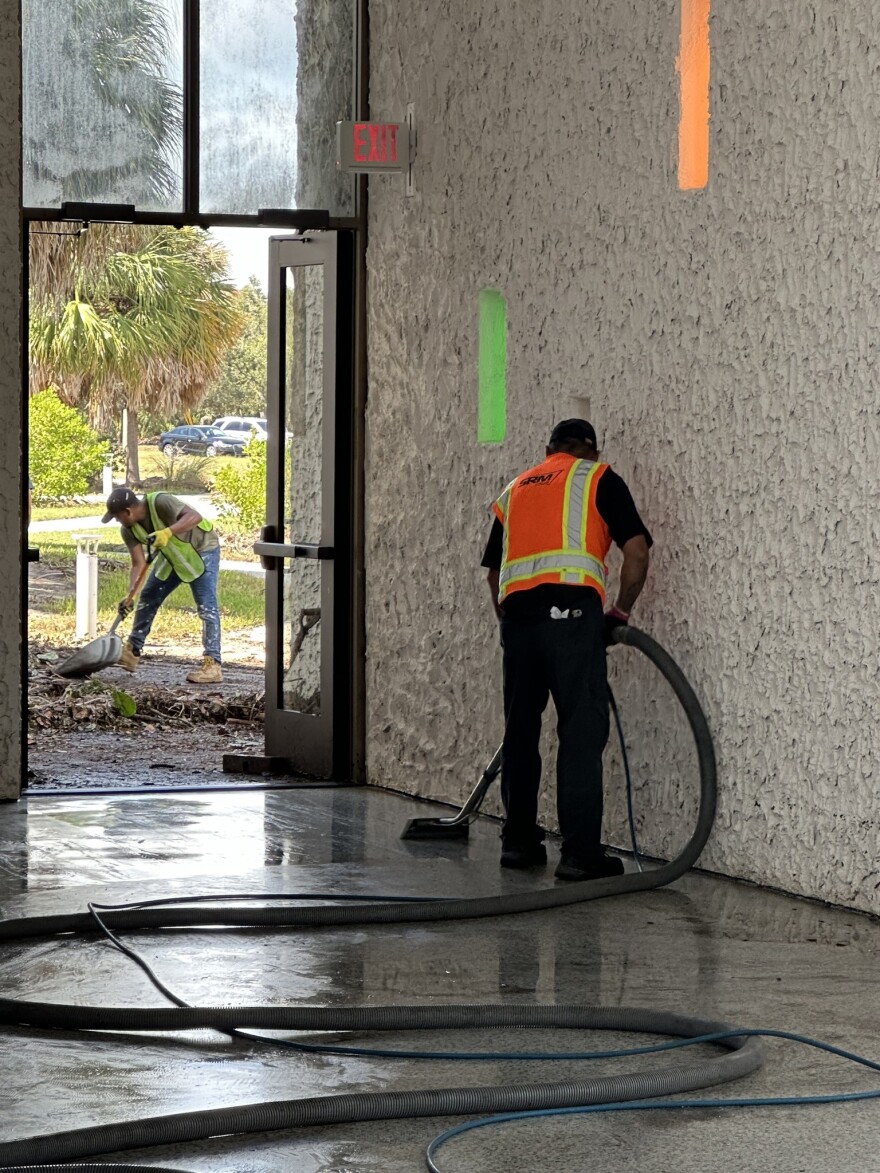Students are returning to Eckerd College after a month of online learning.
Located in south St. Petersburg, near the water, faculty and students are made aware of the risks associated with hurricane season early in their time there.
"Hurricane evacuation is one of the first things that we talk to our students about the day they arrive on campus," said Heather Vincent, the associate dean for general education at Eckerd.
"We encourage students to make their hurricane evacuation plan in August while their parents are still here with them, so that the process of evacuation isn't nearly as anxiety [inducing] as it otherwise might be."

With around 88% of students living on campus, mandatory evacuations were put in place for Hurricane Helene on Sept. 25.
What students and faculty thought would only be half a week off from school turned into something much longer as Hurricane Milton approached two weeks after Helene hit the campus hard.
“It seems like everyone lives on campus, which is an interesting thing to think about, because it's not just their school, it's their home,” said Janet Keeler, an assistant professor of journalism.
“It adds kind of an extra layer of angst to the whole thing.”

Eckerd officials said that there was minimal damage to on-campus housing units, with the exception of some residence hall lounges that are still being worked on due to water damage.
“Not only do so many students live on campus, probably more than that are from out of state,” said Keeler.
Keeler said she saw students evacuate to states like Illinois, Massachusetts and Texas, with some flying out of country to their homes in Mexico City and Europe.

One of Keller’s students is Aly Chisholm, who evacuated to Sarasota for Helene and then New Hampshire for Milton.
For her, having classes move online was a difficult adjustment.
“They’ve been kind of overwhelming. It feels a lot like COVID, which kind of stinks,” said Chisholm.
Dean of faculty Christine Wooley emphasized the toll it can take on educators and students to make the switch between in-person and virtual learning.
"You cannot simply pick up an in-person class and drop it into a Zoom room and have it run the same way,” said Wooley. "You have to be really thinking broadly about the ways that you can reach students, even when you are not physically with them on campus."
Wooley said instructors and faculty were given leeway in terms of running their courses remotely, so that students can return to campus prepared to continue their studies and "hit the ground running."

Alongside the educational aspect of in-person classes, Chisholm has also missed socializing with her peers.
“I do often think about how this might affect making friends. Because I was just starting to make some friends, and now I'm like, we need to start from ground zero,” said Chisholm.
It’s not only students that feel this way.
"It has been so eerily quiet," said Associate Dean of Faculty Jessica Thonen.
"I can't wait to hear the students and their energy. I think I'll also be loud and cheering. I just can't wait to have that community back.”






